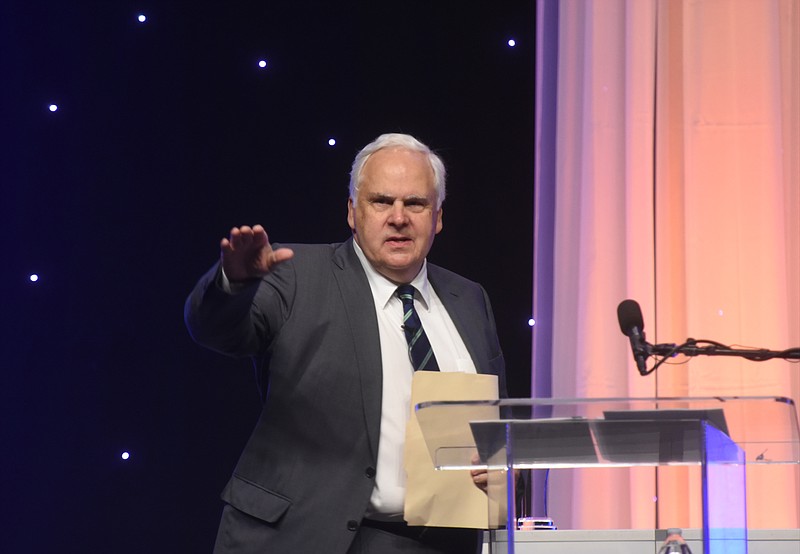Monopolies tend to gravitate to the lowest common denominator.
FedEx Corp.'s chief executive cited the "poor results" of the nation's public education system on Wednesday, saying it's not turning out the kind of workers that companies need today.
"We're not producing the type of students we need for the 21st-century workforce - period," said Frederick Smith, the founder of the Memphis-based parcel delivery giant.
Smith, who gave the keynote address at the Chattanooga Area Chamber of Commerce's annual meeting, also cited the "sociological environment" in which students are growing up for the lack of results.
But, he said, there's a breakdown in the nation's public schools and a lack of competition.
"Monopolies tend to gravitate to the lowest common denominator," Smith said. "I strongly believe the most important thing that makes FedEx better every day is competition."
He said he's a big supporter of school vouchers and charter schools.
"You wouldn't watch an NFL game if there weren't two teams on the field," Smith said in answer to a question at the event that drew about 1,200 people. "You wouldn't watch a tennis match if there weren't two players."
Smith wasn't the only official at the annual meeting who talked about workforce development.
Roy Vaughn, vice president of corporate communications for BlueCross BlueShield of Tennessee and the Chamber's new chairman, called for improvements.
"It helps us get home-grown prosperity and major investments," he said, citing a $22.5 million plan announced Monday by West Star Aviation to place an air maintenance facility at Lovell Field. "Chattanooga is on a roll."
Smith spoke mostly on innovation, calling it "the Holy Grail of both businesses and consumers."
"It's a topic we live and die with at FedEx I can assure you," he said. "We know it's one of the continued success factors in our company."
FedEx last year produced $47 billion in revenue and it employs more than 300,000 people.
Smith said that in 1973 in Memphis, Federal Express sent 14 jets carrying 186 packages to 25 cities in the U.S., birthing the overnight delivery industry.
He said the jets had been built to carry people, and it was never contemplated they'd be used for freight. But, Smith said, the company innovated and came up with a freighter conversion system.
He said that complex government regulations regarding air cargo at the time made it so the company initially couldn't use planes which carried more than 7,500 pounds of cargo.
"The archaic regulations were stifling innovation," Smith said.
The FedEx chief said his company led a movement that resulted in deregulation of the air cargo industry after "a bruising series of fights" in 1977.
"Contrary to opponents, life on earth did not cease," he said.
Smith said the company also pushed for the 1980 deregulation of surface transportation for interstate trucks and railroads. Also, the U.S. has been at the forefront of opening up highly regulated international skies, he said.
That has led to FedEx expanding around the world, the CEO said, serving 220 countries and territories.
"We serve everyplace that's permitted by the U.S. government with the exclusion of Cuba, which may change soon, Iran, Syria and North Korea," Smith said.
The deregulatory efforts and legislation have permitted today's modern society, he said.
"They were profound pieces of legislation, absent of which there'd be no Wal-Mart, no Target, no Amazon, no FedEx," Smith said. "It's government getting out the way and it made a huge difference in our society."
He said the changes have cut logistics costs from 16 cents of every dollar to about 9 cents.
"Those enormous productivity improvements are what basically has funded this economy's ability to offer the social benefits that we now do in terms of increased Medicare, Medicaid, things of that nature," Smith said.
Contact Mike Pare at mpare@timesfreepress.com or 423-757-6318.
